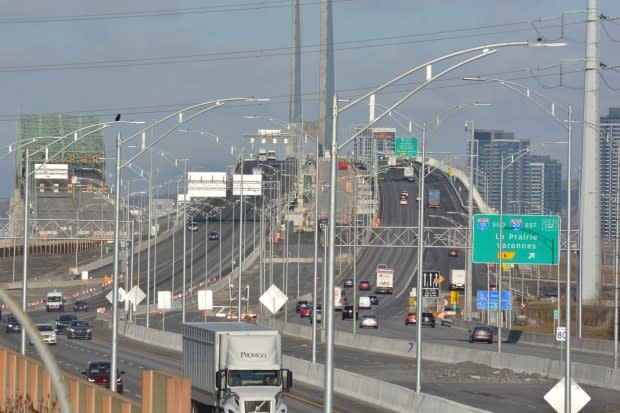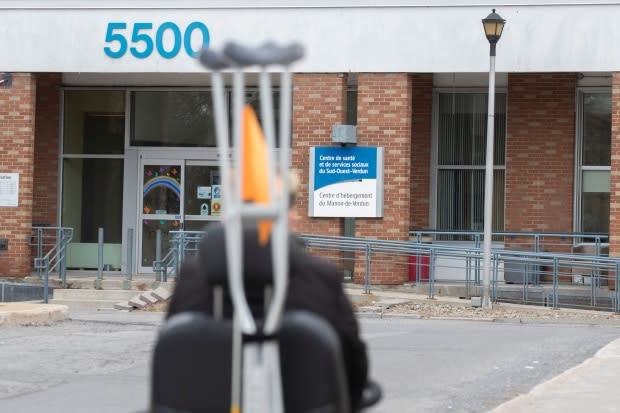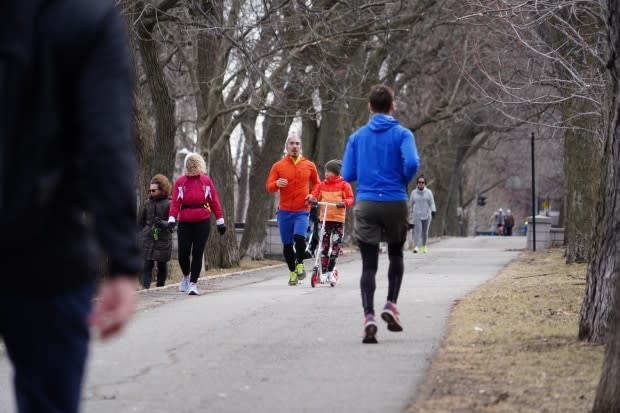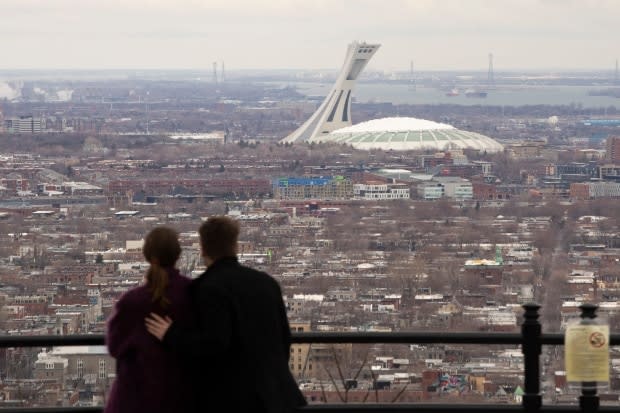As COVID-19 spreads in Montreal, public health authority cracks down on citizens' movement
Fourteen Montrealers have died of COVID-19, and with the community spread of the novel coronavirus, Montreal will be enacting stricter measures in the coming days to restrict people's movement, said public health director Dr. Mylène Drouin.
There are now 2,097 confirmed cases in Montreal. That equates to about 102.5 people per 100,000 residents, according to Montreal public health.
There are 132 people in hospital, with 26 in intensive care. As of Tuesday, 121 health-care workers have tested positive. Those cases may be due to travel, but some are also from contact with an infected patient, Drouin said.
Among the new efforts to contain the spread of the coronavirus, the city will restrict visits to large multiplexes and condominium buildings.
Drouin said officials will be meeting with landlords and building managers to ensure visitors are limited, and the buildings are kept clean.
"If there are cases in the building, they will have to be more vigilant about isolating," said Drouin.
Drouin said multiplexes have many communal spaces, such as staircases, hallways and elevators.
"So we are going to ask the owners of those buildings to reinforce hygiene measures and to secure access so there are no more visitors," she said.

Public officials will be working to ensure these measures are respected and that residents of these buildings who have tested positive are staying inside their units. At this time, fines will not be issued, but if some owners do not collaborate, it could happen, Drouin said.
Intervening in seniors' residences, businesses
Drouin said nearly all of Montreal's boroughs now have cases of community transmission. She shut down any suggestion of quarantining entire neighbourhoods.
"When we are in community transmission in a region, it is not justified to confine or close a borough or a sector, in relation to the others," she said.
In her briefing Wednesday, Drouin echoed the provincial health authority's concern about the spread of COVID-19 within seniors' residences. She said more than 13 long-term care institutions on the island have at least two cases, and of those, three CHLSDs are coping with significant outbreaks.
"We must remember that overall, these are our most vulnerable environments and that currently there are a lot of efforts being made to secure these environments," said Drouin, citing the agency's focus on ensuring staff are not bringing the virus into buildings.

Beyond seniors' residences, Drouin said businesses should not be demanding a doctor's note if employees call in sick because she doesn't want medical clinics overloaded with requests.
"If you have symptoms, don't go to work," Drouin said.
"If you are still working right now, you are considered an essential worker. And it is essential that those workers do respect the two metres [rule] and the hygiene measures."
She said the agency is also ready to work with any company that has an employee who tests positive, helping to ensure everybody is safe from the spread of COVID-19.
Montreal isn't closing parks yet
Drouin said she will also be asking Montreal police to ensure people using the city's parks are practising physical distancing.
She said officials do not want to close down parks, especially now that it is warming up, but it is important that everybody follow the public health guidelines.

Police will first warn people, she said, but if they are not compliant, a fine will be issued.
"If you go out, respect the two metres [rule], and when you come home, please wash your hands," she said.
She said people should only be going out if necessary and not visiting other neighbourhoods, if possible.
Earlier this afternoon, Premier François Legault assured the population that there are no plans to prohibit movement to and from the island of Montreal.
Legault said if an island-wide travel ban were to be imposed, the province would also have to restrict access to the off-island suburbs, such as Longueuil and Laval.
"If we decided one day to do that, we would need also to close the suburbs because [from] north and south of the island of Montreal, there's a lot of travelling," he said.
However, he did express dismay at how many people had been seen gathering in groups in La Fontaine Park on Tuesday.
"The message is becoming increasingly clear to police: it is necessary to start issuing tickets," he said.

Montrealers in their 20s account for highest number of cases
The health agency said of Montreal's 2,097 cases, people aged 20 to 29 make up the highest number of cases, with 380 confirmed.
People 30 to 39 account for 374 cases, and those 40 to 49 account for 357 confirmed cases.
Those aged 50 to 59 account for 342 cases, and there are 258 positive cases in the 60 to 69 age group.
By comparison, those 70 and up account for 259 cases, and 121 people aged 19 and under have tested positive.
What this means is young people must respect physical distancing measures because it is clear they can easily spread the virus, Drouin said Wednesday.
She said younger people are not at a higher health risk, but those in older age groups are, and that's why it is important that everybody follow the recommendations.
Due to "technical difficulties," Montreal public health says it will not update the breakdown by borough and municipality until Thursday. For now, those numbers are based on Monday's data — when the island was still at 1,991 cases.
Provincewide, there are now a total of 4,611 confirmed COVID-19 cases in the province, up from 4,162 a day earlier.


